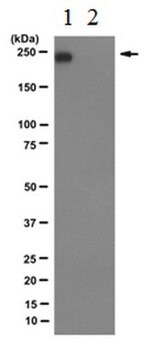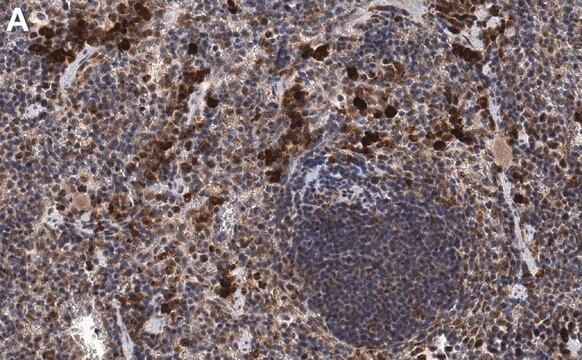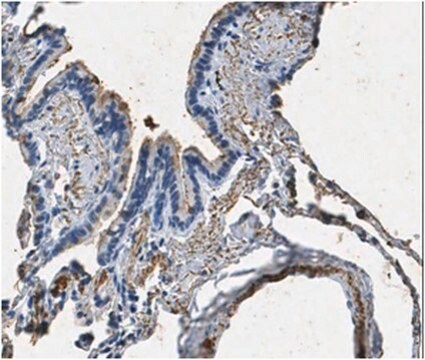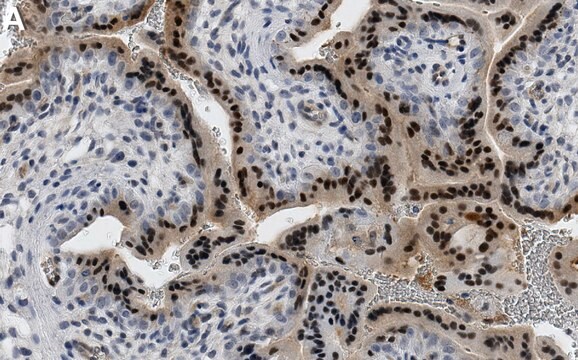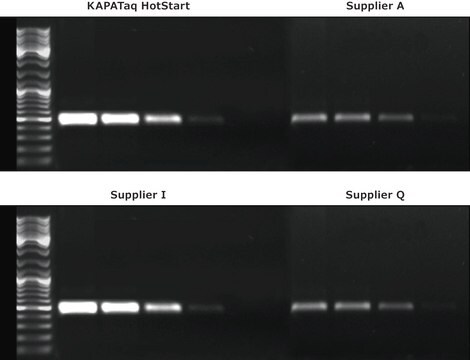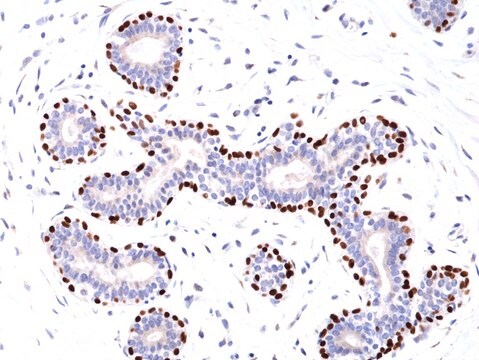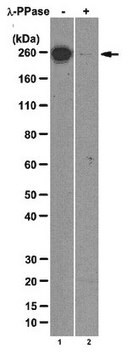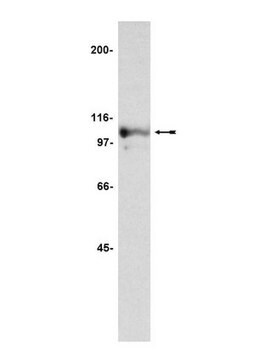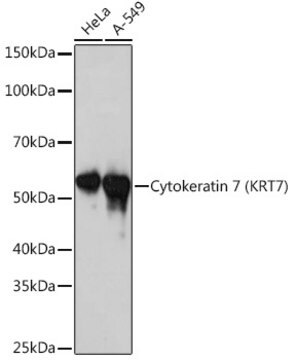MABC587-I
Anti-Nucleolin Antibody, clone 364-5-10-5
About This Item
Productos recomendados
biological source
mouse
Quality Level
conjugate
unconjugated
antibody form
purified antibody
antibody product type
primary antibodies
clone
364-5-10-5, monoclonal
mol wt
calculated mol wt 76.61 kDa
observed mol wt ~110 kDa
purified by
using protein G
species reactivity
mouse, human
packaging
antibody small pack of 100 μg
technique(s)
flow cytometry: suitable
immunocytochemistry: suitable
immunohistochemistry (formalin-fixed, paraffin-embedded sections): suitable
western blot: suitable
isotype
IgG1, lambda
epitope sequence
Unknown
Protein ID accession no.
UniProt accession no.
shipped in
dry ice
target post-translational modification
unmodified
Gene Information
human ... NCL(4691)
General description
Specificity
Immunogen
Application
Evaluated by Western Blotting in HeLa cell lysates.
Western Blotting Analysis: A 1:1,000 dilution of this antibody detected Nucleolin in HeLa cell lysates.
Tested Applications
Immunohistochemistry Applications: A 1:250-1,000 dilution from a representative lot detected Nucleolin in human breast cancer and human kidney tissue sections.
Immunohistochemistry Applications: A 1:10 dilution from a representative lot detected Nucleolin in ovarian cancer metastasis-infiltrated human lymph node tissue.
Flow Cytometry Analysis: A representative lot detected Nucleolin in NK-92MIO cells gated and ungated for CD56.
Immunocytochemistry Analysis: A 1:250 dilution from a representative lot detected Nucleolin in A431 and HEK293 cells
Western Blotting Analysis: A representative lot detected Nucleolin in Western Blotting applications. (Kour, R., et al. (2019). RNA. 25(10):1377-1392).
Note: Actual optimal working dilutions must be determined by end user as specimens, and experimental conditions may vary with the end user
Physical form
Storage and Stability
Other Notes
Disclaimer
¿No encuentra el producto adecuado?
Pruebe nuestro Herramienta de selección de productos.
Storage Class
12 - Non Combustible Liquids
wgk_germany
WGK 2
flash_point_f
Not applicable
flash_point_c
Not applicable
Certificados de análisis (COA)
Busque Certificados de análisis (COA) introduciendo el número de lote del producto. Los números de lote se encuentran en la etiqueta del producto después de las palabras «Lot» o «Batch»
¿Ya tiene este producto?
Encuentre la documentación para los productos que ha comprado recientemente en la Biblioteca de documentos.
Nuestro equipo de científicos tiene experiencia en todas las áreas de investigación: Ciencias de la vida, Ciencia de los materiales, Síntesis química, Cromatografía, Analítica y muchas otras.
Póngase en contacto con el Servicio técnico